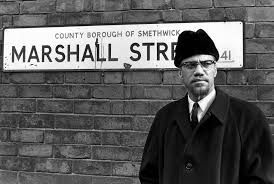
Just days before his assassination, Malcolm X delivered a powerful and thought-provoking speech at the London School of Economics (LSE). Addressing students and academics, he spoke on topics such as racism, colonialism, and the global struggle for Black liberation. The event was part of his international tour aimed at building solidarity across the African diaspora and increasing awareness of the civil rights struggle in the United States.
On February 11, 1990, Nelson Mandela was released after 27 years of imprisonment in South Africa. One of his greatest pleasures—watching the sun set while listening to the music of Handel or Tchaikovsky—had been denied to him for decades. Locked in his cell during daylight hours and deprived of music, Mandela was cut off from these simple yet deeply cherished moments of peace.
On February 11, 1989, The Right Reverend Barbara Clementine Harris, a Philadelphia native, became the first woman ever consecrated as a bishop in the Anglican Communion. Prior to entering the priesthood, Bishop Harris had a distinguished career in public and community relations in Philadelphia from 1949 to 1977. She later served as the Baccalaureate Speaker for the University of Pennsylvania’s Class of 1996.
On this day in 1976, Clifford Alexander, Jr. was confirmed as the first African American Secretary of the Army. Appointed by President Jimmy Carter, he served with distinction until the end of Carter’s term in 1981, focusing on issues such as fairness in military promotions and opportunities for minorities.
On February 11, 1971, Whitney M. Young, Jr. passed away suddenly while in Nigeria. He served as Executive Director of the National Urban League from 1961 until his untimely death. A visionary leader, Young worked tirelessly to bridge the racial divide in America, combining the principles of social work with civil rights activism. Under his leadership, the Urban League expanded its role from job placement to a broader advocate for social justice and economic empowerment.
Robert C. Weaver was sworn in as Administrator of the Housing and Home Finance Agency, marking the highest federal position ever held by a Black American at that time. His appointment was a pivotal step toward racial equity in U.S. public service and laid the groundwork for his later role as the first Secretary of Housing and Urban Development in 1966.
Owen L. W. Smith, an African Methodist Episcopal (AME) Zion minister and educator from North Carolina, was appointed as the U.S. Minister to Liberia. His appointment represented a significant moment in African American diplomacy during the post-Reconstruction era, highlighting the role of Black leaders in international relations and U.S.-Africa affairs.
Jarena Lee, the daughter of former slaves, was born in Cape May, New Jersey. She is considered the first female preacher in the African Methodist Episcopal (AME) Church. Despite significant resistance due to her gender, Lee became a powerful and widely respected voice in the early 19th-century religious revival movement. In 1836, she published her autobiography, The Life and Religious Experience of Jarena Lee, a Coloured Lady, Giving an Account of Her Call to Preach the Gospel, making her one of the first African American women to publish a spiritual autobiography.
On February 11, 1644, eleven Black men in the Dutch colony of New Netherland (present-day New York) submitted a petition for their freedom, marking the first recorded legal protest by Black people in America. They had served the Dutch West India Company for 17–18 years and were promised freedom on the same terms as other servants. In response, the Council of New Netherland granted conditional freedom to the petitioners and their wives, though their children remained enslaved.
© 2025 KnowThyHistory.com. Know Thy History